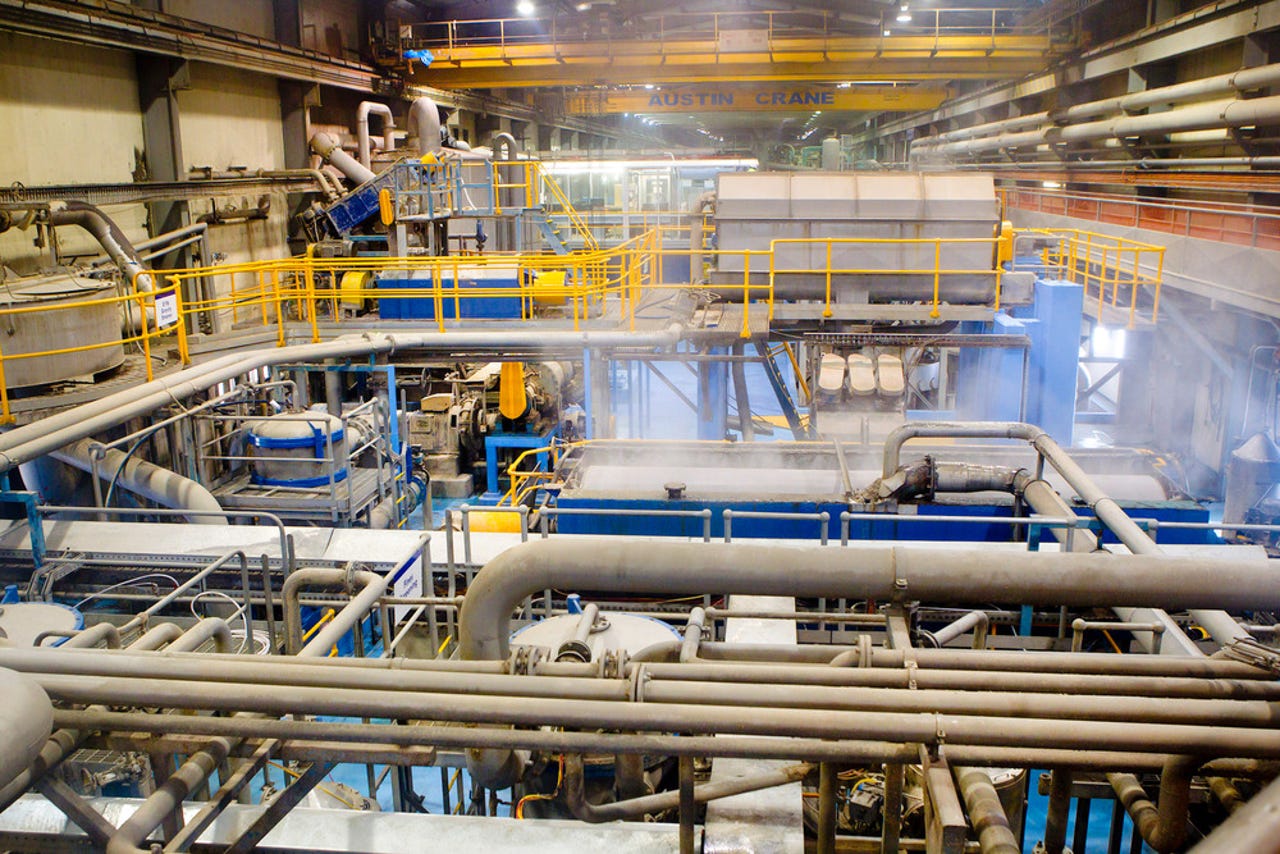Visy's robotic vision driven by Amazon


Visy Industries clean energy factory
Visy Industries is one of the world's largest privately-owned paper, packaging, and recycling companies. Founded in Melbourne in the late 1940s, it would be easy to not think of Visy as a technology company.
However, its chairman and CEO Anthony Pratt told the Amazon Web Services (AWS) Sydney Summit on Wednesday that's exactly what Visy is, touting technology and artificial intelligence (AI) as playing a central role in helping the company achieve its goals.
Visy's relationship with Amazon started by selling boxes to Amazon in the United States in 1999.
Pratt said when Amazon was gearing up for its entry into online retail in Australia, he was told Visy was the only local company looking forward to its arrival as boxes are a pretty important supply chain element for Amazon.
"As they say, in a gold rush, sell shovels," Pratt said. "But just as AWS helps Visy innovate on the IT side, we try to help Amazon innovate on the packaging side."
High on Visy's priority list is custom-made, fit-for-purpose boxes that can be used to keep food fresh, or packaging that allows for traceability, for example.
"We're not far away from seeing packaging that can even monitor its contents in the consumer's home and automatically trigger a re-order, or it might provide proof-of-origin for supply chain integrity," Pratt explained.
Although playing in a slower space to AWS and its parent, technology, robotics, and AI are becoming central to Visy's business.
"We'll soon have one of the only fully-automated corrugated factory warehouses employing driverless robotics -- that's robotics in action," he continued.
"Beyond that we have a vision which I call the lights-out factory -- a fully automated box factory that operates in the dark, because robots don't need lights."
Visy also recently stood-up an industrial technology and digital hub in Singapore, charged with incorporating IT, AI, and robotics into every aspect of packaging, paper-making, and recycling.
"We want to use technology to help us do a better job of looking after our customers, lower our costs, innovating -- but it has to be the right sort of innovation -- 80 percent of our industry is keeping machines running well," Pratt said.
"But engineers get bored, so we end up spending money on things that don't make profit. It's always important to not just go for the cool things in technology, but the ones that have the fastest payback with a sufficient margin of error."
In 2016, Visy realised its existing systems and infrastructure was constraining innovation, and decided to go "all-in" with AWS. That included migrating 100 applications, including a core SAP system to AWS.
Pratt said the shift happened in a matter of months, and ahead of budget with no business disruption.
With the IT folk no longer "fighting fires" and "keeping the lights on", Visy is now trialling the likes of machine learning to help with sales and OHS data.
"Energy is a huge cost for us, so because of our reliance with AWS, it's enabling us to trial artificial intelligence to bring down our energy usage. We're actively exploring ways that AWS can help us move closer to advance automation and robotics," Pratt added.
"It wasn't too long ago that economists were predicting the death of manufacturing in countries like Australia and America because they couldn't compete with low-labour costs in Asia -- I beg to differ. I can even see a scenario where countries like Australia and America, with the best brains and natural resources, are where the manufacturing is because robots make labour costs irrelevant."
Pratt said his vision is to keep the corrugated box as relevant and useful to Amazon as it has been to the rest of the world since it has existed.
"Because we know to remain relevant and competitive to Amazon, we need to be at the forefront of manufacturing technology, IT, AI, customer service, and product innovation," he concluded.
RELATED COVERAGE
- AMP on getting Australian regulators onside for AWS shift
- How the ABS prepared for the same-sex marriage survey using the public cloud
- An Amaysim journey: A lesson in how to use cloud to take on the big boys
- How the NSW government disrupted insurance through the cloud with icare
- Xero completes two-year AWS migration project
- How machine-learning startup Jemsoft turned a tragic situation into a viable business
- Cloud lessons: Five tips for firms moving to AWS (TechRepublic)
- Amazon Web Services: The smart person's guide (TechRepublic)
- Here's what developers really think about AWS, Microsoft Azure, and Google Cloud (TechRepublic)